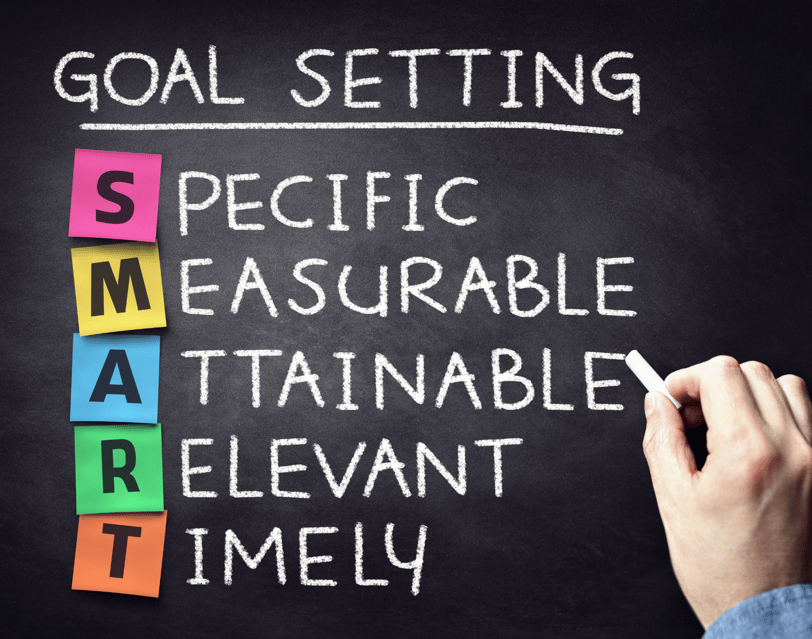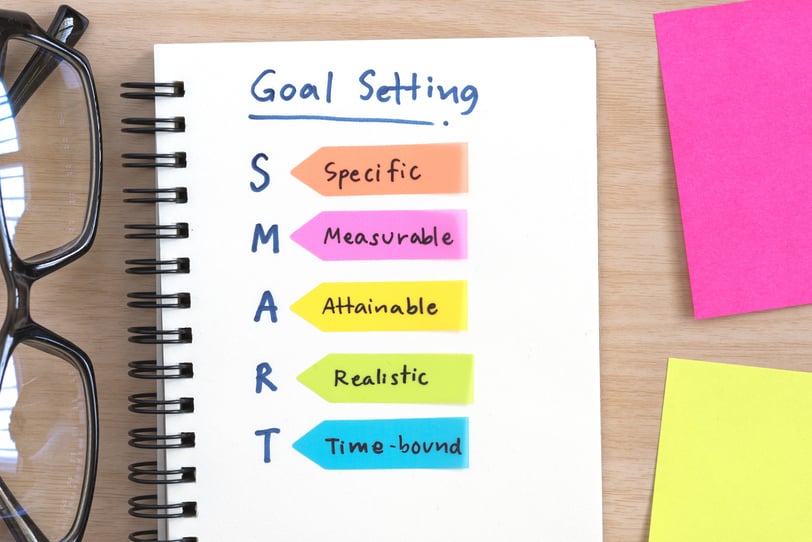Goal Setting
How to Foster Academic- and Personal Growth
Hello fellow educators, and avid readers! In my resident country, it's winter, and like many others here, I literally spent the entire festive season in bed with flu. This resulted in my goaI-setting being pushed to the back-burner and I sort of started my year in 'delayed' mode. However, it's still January, and as a dear friend said: "You can still set goals!" How true, and here we are taking a look at helping our students in goal-setting, yet at the same time applying it to our own personal- and professional goals for this year, and after.
In the dynamic realm of English as a Foreign Language (EFL) education, cultivating a culture of goal-setting is paramount for the academic and personal growth of students particularly in grades 10 to 12. As educators, we play a pivotal role in guiding our students toward setting and achieving meaningful goals. Let's explore effective strategies and ideas for teaching goal-setting that will empower us, and students alike.


1. Understanding the Importance of Goal Setting:
Before delving into strategies, let's underscore why goal-setting is crucial for high school EFL students. Setting clear objectives,
enhances motivation,
fosters a sense of purpose, and
propels students towards academic success. It also cultivates valuable life skills such as-
time management,
perseverance, and
self-reflection.
3. Personalized Learning Plans:
Empower students to take ownership of their language learning journey by creating personalized learning plans.
Encourage them to identify their strengths, weaknesses, and areas for improvement.
Collaboratively set short-term and long-term language learning goals, integrating skills like reading, writing, speaking, and listening. This not only caters to their individual needs but also instills a sense of responsibility for their own progress.
5. Peer Collaboration and Support:
Facilitate a collaborative learning environment where students can share their goals with peers. Engaging in goal-setting discussions not only promotes a sense of community but also provides an opportunity for peer support and accountability.
Encourage students to work together, exchange strategies, and celebrate each other's successes.
As educators, we have the privilege of shaping the academic- and personal trajectories of our students. By implementing these strategies, we can instill a culture of goal-setting that not only enhances language proficiency but also equips students with invaluable life skills.
Remember, the journey of goal-setting is as crucial as the destination, and by guiding our students effectively, we prepare them for success in both their language learning endeavors and their future endeavors beyond the classroom.
2. Introducing SMART Goals:
A proven framework for goal-setting is the SMART criteria – Specific, Measurable, Achievable, Relevant, and Time-Bound.
Begin by explaining each element, illustrating its importance, and providing examples.
Encourage students to formulate their language learning goals following the SMART guidelines, ensuring they are realistic and aligned with their individual needs and aspirations.


4. Regular Goal Reflection and Adjustment:
Incorporate regular reflection sessions into your curriculum to assess the progress of set goals.
Encourage students to evaluate what worked well, what needs improvement, and what adjustments are necessary. This practice fosters self-awareness, resilience, and adaptability, essential skills for both language learning and life beyond the classroom.


6. Incorporating Technology:
Integrate technology into the goal-setting process by leveraging online platforms and apps that cater to language learning.
Platforms such as Duolingo, Quizlet, or language exchange apps can enhance the learning experience and make goal tracking more interactive and engaging for students.


Ready to transform your EFL classroom into a hub of empowered learners? Explore this comprehensive Goal-Setting Lesson Plan, designed to seamlessly integrate with the strategies discussed above and guide your students towards academic success and personal development.




